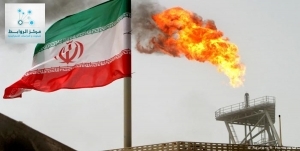Researcher Shatha Khalil
The new sanctions have come into effect and could hinder the stalled European efforts to keep some trade with Iran by avoiding the use of the US dollar or the US financial system.
Britain, Germany and France are planning to launch a special financial mechanism that will allow the EU to save the Iranian nuclear deal by circumventing the US sanctions system in order to save the Iranian nuclear deal by evasion , noting that this European mechanism is referred to as” ISTEX ” , the instrument in support of Trade exchanges which was established as a temporary solution to humanitarian trade with Europe, discusses internal consultations and is expected to receive formal approval from the EU’s 28 member states.
The three European countries in 2015 represented in this historic agreement with Iran, which gave in exchange of Iran for its nuclear ambitions in return for a relaxation of sanctions to facilitate trade with Iran . They are expected to issue a joint statement on the launch of the project, which has been prepared over the past months, a new entity will be registered in France, managed by Germany, and funded by the three countries to implement a mechanism allowing Iran to trade with European companies, despite the sanctions imposed again on Tehran after the withdrawal of the administration of US President Donald Trump.
The imposition of sanctions on Iran’s financial body by Trump administration is a move likely to derail the economic and humanitarian lifeline that France, Germany and the United Kingdom sought to create.
Washington warns:
Washington has warned the European Union against circumventing its sanctions against Tehran, while Europeans agree with Russia and China on the two conventions that sign the same agreement that Iran has not violated this agreement and should be allowed to trade.
Washington has issued warnings that it will vigorously pursue any company that breaks through the sanctions it has imposed on the Islamic Republic of Iran, which has led to the suspension of a number of major international companies from its dealings with Iran.
The European Union has raised concerns about Tehran’s ballistic missile program, its human rights record, its involvement in Middle East conflicts and its recent attacks on Iranian opposition groups in Europe.
Under the new EU plan, Iran will be allowed to sell its oil to the EU by trade, but with Iran’s low oil supplies to Europe, the current mechanism will target small and medium-sized enterprises.
World oil prices rise:
Oil prices have been rising recently due to sanctions on Tehran, as well as problems in Libya and Venezuela, which have the worlds largest oil reserves.
Brent crude prices have risen about 33% this year, close to the highest in six months, while higher prices due to oversupply usually reflect a strong global economy, but the shock from stock shortages is negative.
While consuming countries will bear the cost of production, exporting countries will enjoy support from corporate and government revenues, fueling inflation and damaging demand, and at some point high prices could cause devastating damage to all.
Since the United States announced its intention not to extend exemptions, the price of oil has risen to its highest level since November 2019. A barrel of North Sea oil, Brent, cost $ 74.69. The economic analyst at Commersbank, Eugen Weinberg said: further price increase can not be ruled out, if the rules are strictly enforced, we risk increasing the price of oil by more than eighty dollars in a very short time.
This rise in oil prices directly affects emerging economies with current account deficits and fiscal deficits, and the risk of large capital flows and weak currencies, which in turn will lead to increased inflation.
This in turn will force governments and central banks to consider other options, such as raising interest rates even as growth slows and demand is low, or realism and capital risk are accepted, including Turkey, Ukraine and India.
The deteriorating economic situation in Iran:
The economic situation in Iran is deteriorating significantly, as Tehran is living on the impact of a crisis likely exacerbated… Can Europe save it? or The sanctions are going on and the situation is getting worse as the sanctions gradually increase and cover all aspects of life, from oil to bank transactions , to overshadow drugs for serious diseases such as cancer and the price of the currency, which has returned to deteriorate steadily.
Iran’s public budget is chronically crippled. Oil and natural gas revenues come after taxes, but US sanctions aimed at curbing oil exports will lead, if implemented, to a stifling economic crisis that can not be tackled without seriously affecting all economic activities, and the standard of living of the citizens which is basically poor.
In turn, the US administration set 12 conditions to end these sanctions in May 2108, foremost of which was to stop enriching uranium while allowing the International Atomic Energy Agency to inspect, stop developing missiles, withdraw from Syria, and refrain from interfering in Iraqi, Yemeni and Lebanese affairs and refrain to support militias in the region, and not to threaten Washington’s allies.
Translated by : mudhaffar al-kusairi
Economic Studies Unit
Rawabet Center for Research and Strategic Studies

